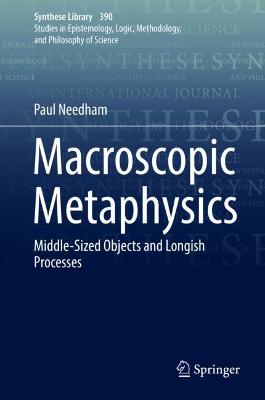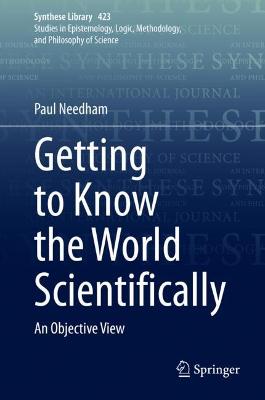Synthese Library
2 primary works
Book 390
This book is about our ordinary concept of matter in the form of enduring continuants and the processes in which they are involved in the macroscopic realm. It emphasises what science rather than philosophical intuition tells us about the world, and chemistry rather than the physics that is more usually encountered in philosophical discussions. The central chapters dealing with the nature of matter pursue key steps in the historical development of scientific conceptions of chemical substance.
Like many contemporary discussions of material objects, it relies heavily on mereology. The classical principles are applied to the mereological structure of regions of space, intervals of time, processes and quantities of matter. Quantities of matter, which don’t gain or lose parts over time, are distinguished from individuals, which are typically constituted of different quantities of matter at different times. The proper treatment of the temporal aspect of the features of material objects is a central issue in this book, which is addressed by investigating the conditions governing the application of predicates relating time and other entities. Of particular interest here are relations between quantities of matter and times expressing substance kind, phase and mixture. Modal aspects of these features are taken up in the final chapter.
Book 423
This undergraduate textbook introduces some fundamental issues in philosophy of science for students of philosophy and science students. The book is divided into two parts. Part 1 deals with knowledge and values. Chap. 1 presents the classical conception of knowledge as initiated by the ancient Greeks and elaborated during the development of science, introducing the central concepts of truth, belief and justification. Aspects of the quest for objectivity are taken up in the following two chapters. Moral issues are broached in Chap. 4, which discusses some aspects of the use and abuse of science, taking up the responsibilities of scientists in properly conducting their business and decision-makers in their concerns with the import of science for society. Part 2 contrasts the view of scientific progress as the rejecting of old hypotheses and theories and replacing them with new ones, represented by Karl Popper, with the conception of progress as accumulating knowledge, saving as muchas possible from older theories, represented by Pierre Duhem. A concluding chapter defends the natural attitude of taking the theories of modern science to be literally true, i.e. realism, in the face of arguments drawn partly from the history of scientific progress in criticism of this stance.

